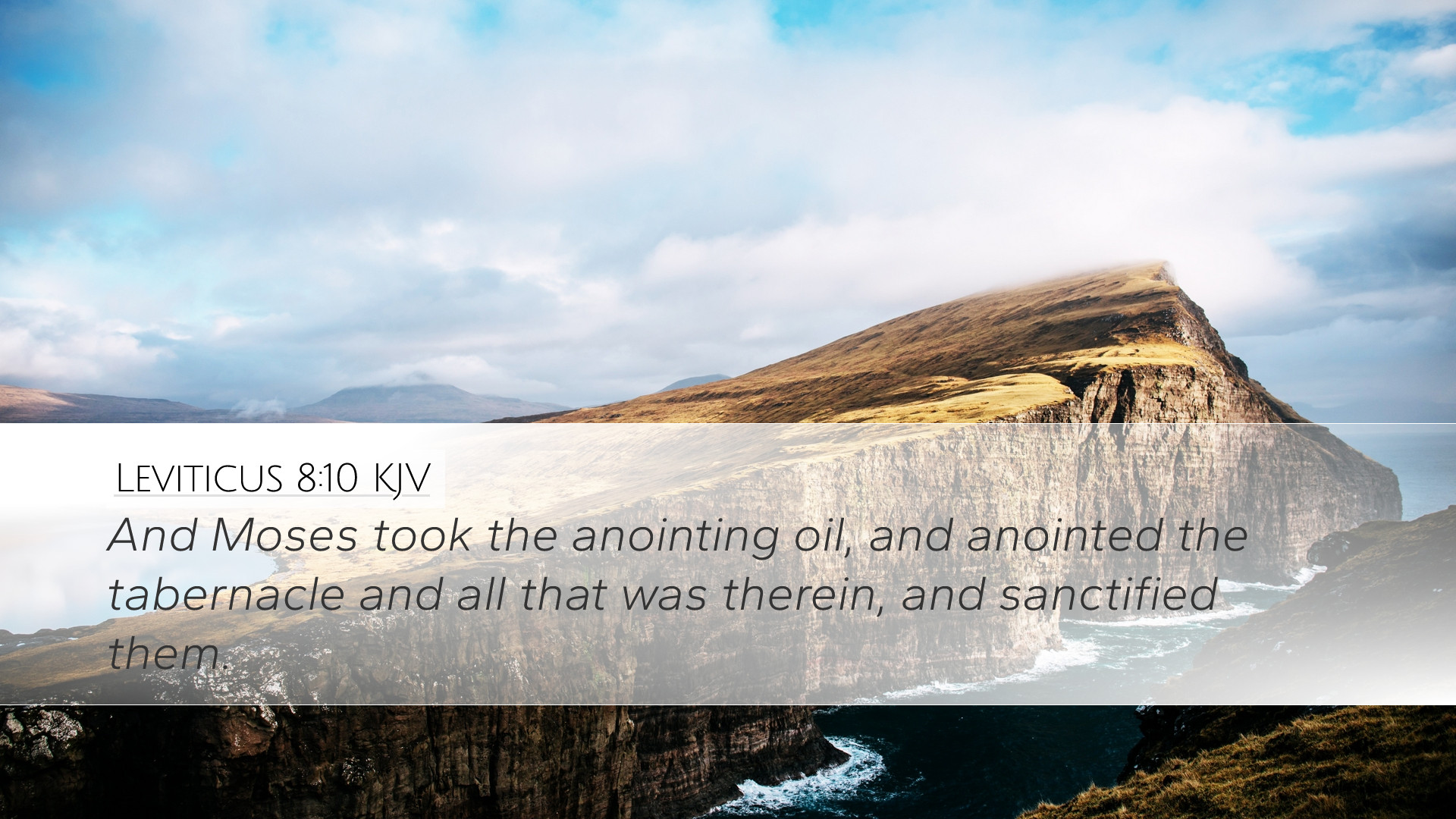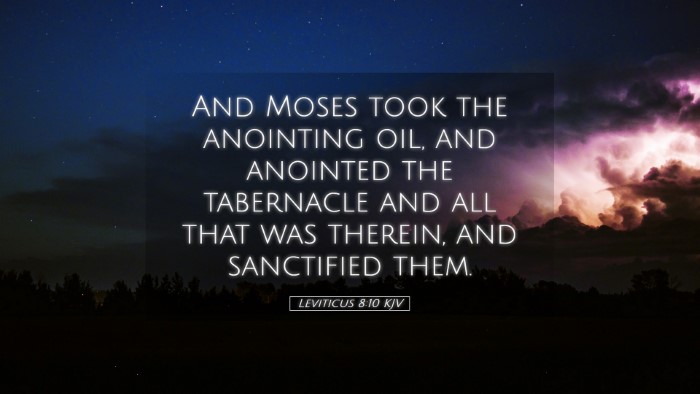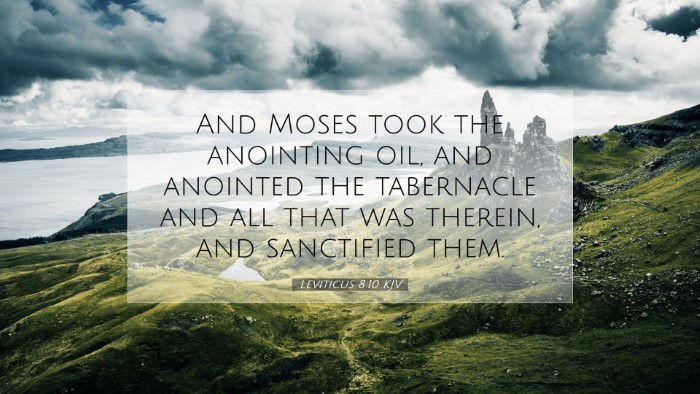Commentary on Leviticus 8:10
Bible Verse: "And Moses took the anointing oil, and anointed the tabernacle and all that was therein, and sanctified them."
Introduction
The anointing of the tabernacle and all its furnishings as described in Leviticus 8:10 marks a significant moment in the establishment of the worship of Israel. This action, carried out by Moses, symbolizes the consecration of space and objects for divine purpose. Here, we explore the implications and meanings derived from this verse through the insights of several esteemed commentators.
Meaning of Anointing
Matthew Henry's Insights: The act of anointing serves multiple purposes, chiefly signifying God's presence and blessing over the objects anointed. Henry notes that the tabernacle was not merely a physical structure but a point of encounter between God and His people. By anointing it, Moses publicly demonstrated that it was set apart for divine service.
Albert Barnes Commentary: Barnes expands upon this concept by emphasizing the importance of the anointing oil as a representation of the Holy Spirit. Just as the oil is poured over the tabernacle, so too does the Spirit sanctify and empower the people of God, enabling them to worship in truth.
Theological Significance
Adam Clarke's Perspective: Clarke provides a thorough analysis of the significance behind the sanctification process. He highlights that the physical act of anointing was accompanied by theological implications regarding holiness. Clarke asserts that anything anointed becomes special in the eyes of God, thus imposing a sense of reverence and responsibility on those who come into contact with it.
- Holiness: Clarke notes that the concept of holiness is central in this context; holiness is an attribute of God that is imparted to the tabernacle through the anointing. This conveys to the worshippers that God desires to dwell amidst His people in a sanctified environment.
- Divine Presence: Following Henry’s remarks, the anointing oil symbolizes God’s presence. The imagery evokes a sacred atmosphere, reminding the people of their covenant relationship with God.
- Set Apart: The act of anointing sets apart the tabernacle and its furnishings, designating them for worship and sacrifice alone. This sanctification is a call for the community to maintain purity in their approach to the sacred.
Practical Implications
The implications of this verse extend beyond ceremonial practices and rituals. For modern pastors, students, and theologians, the anointing of the tabernacle illustrates essential principles relevant to Christian living today.
- The Call to Holiness: As the tabernacle was made holy through anointing, believers are called to live lives marked by holiness, reflecting the character of God in their interactions.
- Worship as a Sacred Activity: Just as the tabernacle was dedicated for worship, every place where believers gather can be a sanctuary when devoutly prepared for encountering God.
- The Role of the Holy Spirit: The analogy of the anointing oil serves as a reminder of the need for the Holy Spirit’s presence in worship and service, emphasizing dependence on divine empowerment.
Conclusion
The anointing of the tabernacle in Leviticus 8:10 holds deep spiritual and practical significance for the faith community. As elaborated by notable commentators like Henry, Barnes, and Clarke, the act is rich in meaning—underscoring the foundational themes of holiness, divine presence, and the sacredness of worship. As church leaders and laypeople alike study this verse, may it inspire a deeper appreciation for the sacred spaces and practices within their own lives and communities.


